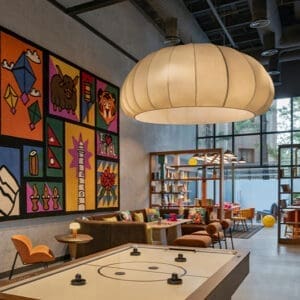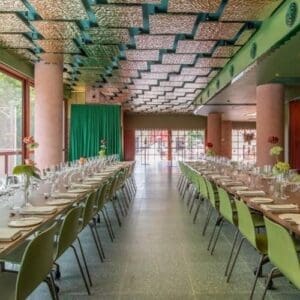 Although tabletop ordering technology can be expensive to install, many restaurants are adding ordering pads to their tabletops—and a new study from the Cornell Center for Hospitality Research (CHR) finds that the tabletop technology can both speed table turns and increase average checks. The study, “The Influence of Table Top Technology in Full-service Restaurants,” by Alex Susskind and Benjamin Curry, is available at no charge from the CHR. Susskind is an associate professor at the Cornell School of Hotel Administration, and Curry is a data scientist at E la Carte, which has developed a tabletop ordering device.
Although tabletop ordering technology can be expensive to install, many restaurants are adding ordering pads to their tabletops—and a new study from the Cornell Center for Hospitality Research (CHR) finds that the tabletop technology can both speed table turns and increase average checks. The study, “The Influence of Table Top Technology in Full-service Restaurants,” by Alex Susskind and Benjamin Curry, is available at no charge from the CHR. Susskind is an associate professor at the Cornell School of Hotel Administration, and Curry is a data scientist at E la Carte, which has developed a tabletop ordering device.
The report analyzes operating results for a full-service casual dining chain that has installed tabletop technology. In a comparison of sales and dining time from before and after the installation, the study finds that dining time was significantly reduced among patrons who used the tabletop hardware to order or pay for their meals. Likewise, the time required for servers to meet the needs of customers declined. The study also found that those who used the devices to order a meal tended to spend more than those who did not.
“It seems clear that most restaurant patrons see the benefits of these tablet-based systems,” said Susskind. “They can use the technology to place orders or summon staff at any time during the meal—say, for drink refills or another appetizer—and the restaurant can ensure its service standards. At the same time, we must remember that about 20 percent of restaurant guests want nothing to do with these pads, and restaurant operators need to be ready to serve those customers in the traditional way.”














